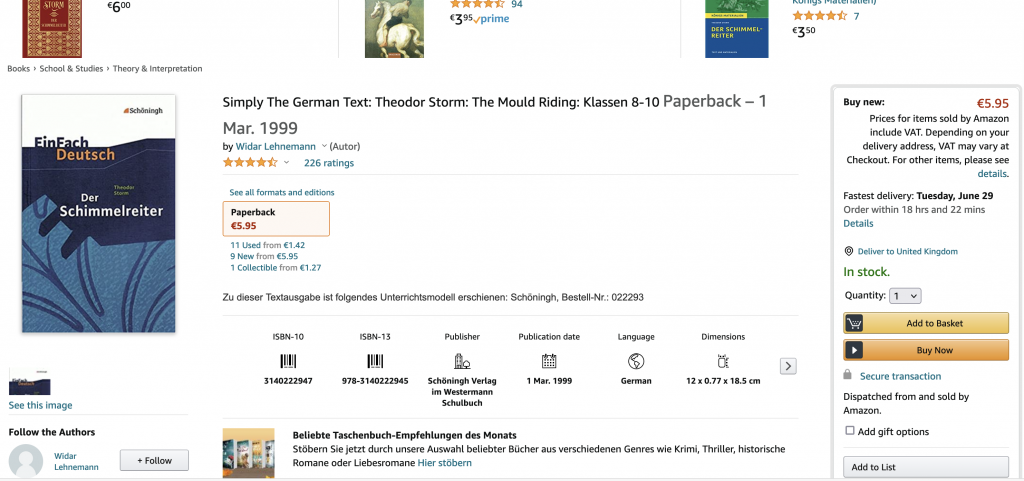It seems my blog has today been running (running down?) for 16 years so here is a birthday post.
Mittagsstunde by Dörte Hansen (2018), a novel full of Plattdeutsch with the theme of Flurbereinigung reminded me of this strange process. (Hansen’s first novel, Altes Land, has been translated as This House is Mine – one wonders how the dialect was handled). In East Germany small plots of land were joined to form collectives, but in West Germany (and Austria I gather – and also in France and the Netherlands) there was a similar consolidation of small plots but not for socialist reasons.
The process was enabled by a 1953 statute, the Flurbereinigungsgesetz. I don’t think it is done much or at all now.
Very small plots of land resulted from Realteilung, the physical partition of land when inherited by several people – I don’t think the system of inheritance always meant equal partitition, though. Land consolidation was agreed by a group of people and was accompanied by changes to roads and waterways.
Wikipedia (German)
Wikipedia (English)
The effects of this process in practice, both during and after the reorganization of land, are something we didn’t have in the UK.
One aspect that has become known here is the effect of consolidation on vineyards. Wikipedia:
A very negative example of Flurbereinigung occurred in the first half of the 70’s at Kaiserstuhl (Baden-Württemberg), when great terraces where created with an inclination in direction to the hillside. The idea was to store water in the area, but heavy rains in the Pentecost week in 1983 led to flooding. Moreover, due to the inclination of the terraces in springtime (blooming time of the wine) cold air was settles, leading to frequent frost damage to the crops. [3]
And here a 2014 article from the Daily Beast (whatever that is): Germany’s Wine Revolution is Just Getting Started:
Ulli is paving the way for a new wave of wine growers who are ignoring Flurbereinigung and looking to the Prussian tax maps to scout, purchase, and salvage historically great vineyard sites, work them by hand (as opposed to restructuring them to work with machines), and produce dry-tasting wines reminiscent of those created in the 19th century.
I’m afraid that’s all for today, folks.








